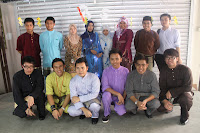Plagiarism is using someone else's words and ideas in a paper and acting as though they were your own. This definition includes copying someone else's ideas, graphs, pictures, or anything that you borrow without giving credit to the originator of the words and ideas. It definitely includes anything you download from an internet site or copy out of a book, a newspaper, or a magazine. It also includes stealing the ideas of the another person without giving her or him proper credit.
Some obvious examples of plagiarism include; copying someone else's paper, taking short or long quatations from a source without identifying the source and turning in a paper you bought over the internet.
Some less-obvious examples include; changing a few words around from a book or article and pretending those words are your own, rearranging the order of the ideas in a list and making the reader think you produced the list, borrowing ideas from a source and not giving proper credit to the source, turning in a paper from another class (whether this is plagiarism or not depends on your instructor-asks first!), using information from an interview or an online chat or email, etc, without properly citing the source of the information and using words that were quoted in one source and acting and citing the original source as thought you read it yourself.
It important to acknowledge because to know your credibility as a writer. You need to make your own sentence with your own sentence with your understanding. When you are taking other ideas that's meant you do not believe yourself that can do better
We have to know that plagiarism is a wrong way to do your works. You only can make others work as your reference. Their works cam make you understanding what the process take place.

































































